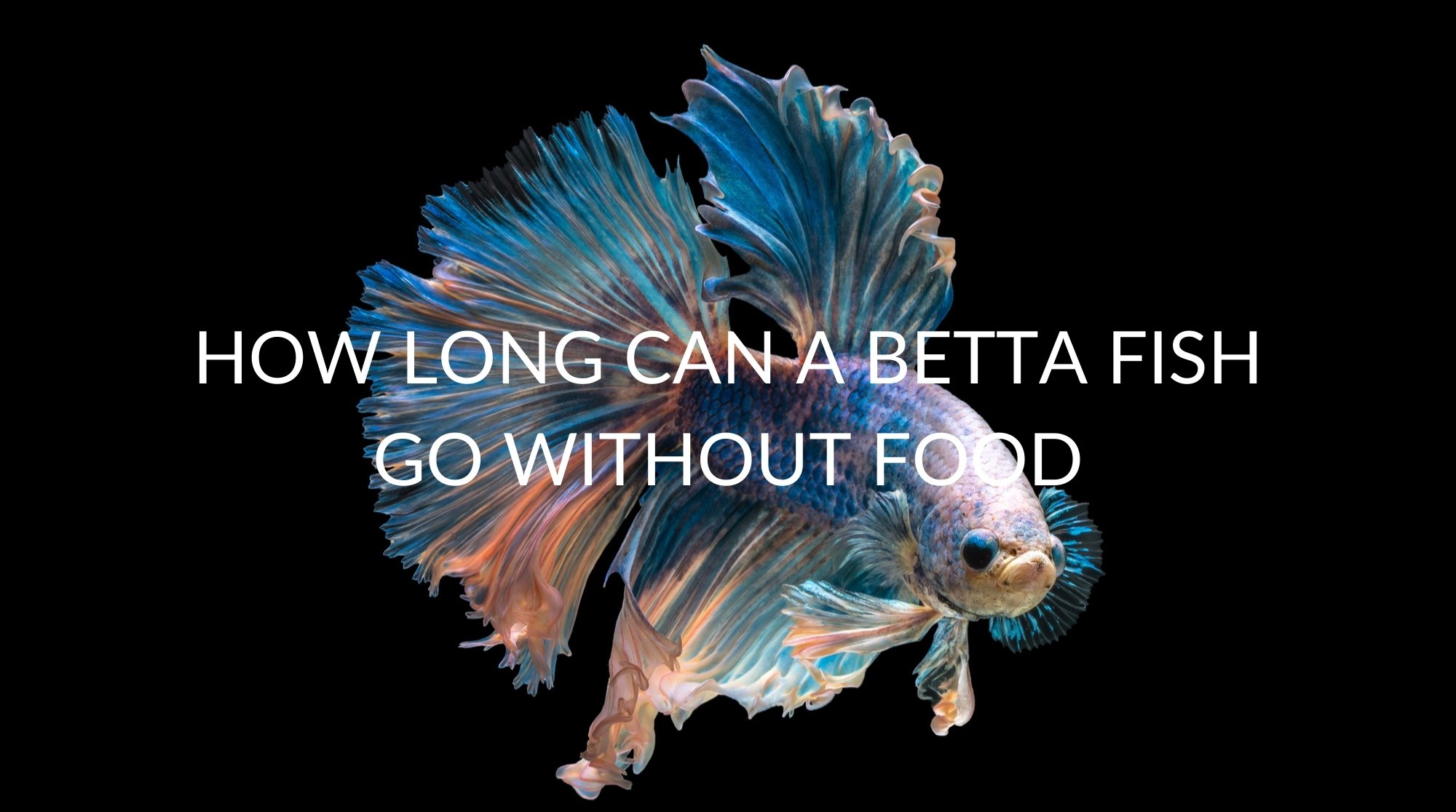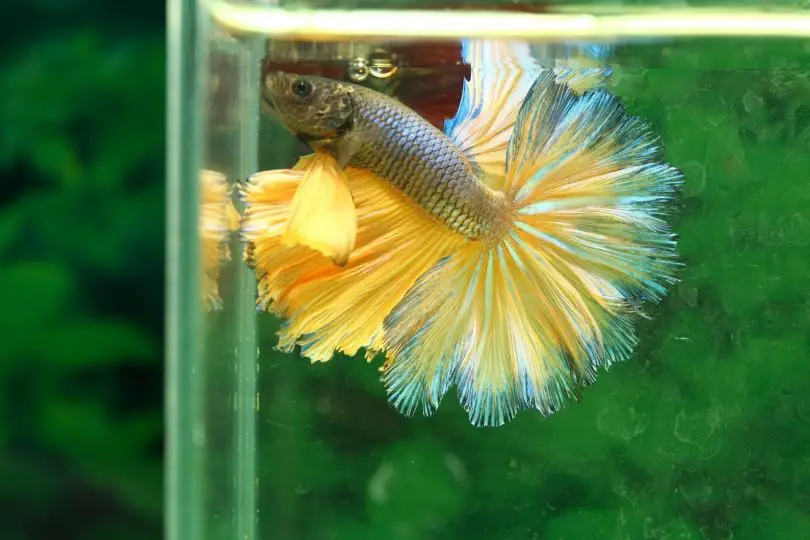Betta fish, also known as Siamese fighting fish, are popular aquarium pets because of their vibrant colors and unique personalities. However, many fish owners often wonder if their Betta can go without food for a day or two. The answer to this question is not as simple as a yes or no, as it depends on various factors such as the age, health, and size of the fish.
In this article, we will explore the question, “Can a Betta Fish Go Without Food for 2 Days?” in detail and provide you with the necessary information to ensure that your Betta fish remains healthy and happy. We will also discuss the risks of overfeeding your Betta and provide you with tips on how to establish a healthy feeding schedule. So, let’s dive in and learn more about the feeding habits of Betta fish.
Yes, a betta fish can go without food for 2 days. In fact, betta fish can survive up to 2 weeks without food. However, it is not recommended to withhold food for more than 3-4 days as it can lead to malnutrition and health problems. It is important to maintain a regular feeding schedule and not overfeed as well.

Can a Betta Fish Go Without Food for 2 Days?
Betta fish are popular pets due to their vibrant colors and low maintenance needs. While feeding them is crucial for their health, it’s common for pet owners to wonder if their betta fish can survive for a day or two without food. This article answers that question, along with other important information about betta fish feeding habits.
1. How Long Can Betta Fish Go Without Food?
Betta fish can survive for up to 14 days without food, but this doesn’t mean that you should starve them. While they have the ability to withstand periods of food deprivation, it’s essential to feed them regularly to maintain their health and happiness.
It’s also worth noting that betta fish are prone to stress, and not feeding them for extended periods can lead to health issues. As such, it’s recommended that you feed your betta fish at least once a day to ensure they have the necessary nutrients to thrive.
2. The Importance of Feeding Betta Fish
Feeding your betta fish is essential for their overall well-being. Betta fish require a diet that’s high in protein, and they benefit from a varied diet that includes both live and frozen food.
Regular feeding helps to maintain their immune system, promote growth, and prevent diseases. It also keeps their digestive system healthy and prevents constipation, which can be fatal for betta fish.
3. Signs of Hunger in Betta Fish
Betta fish are intelligent creatures that have the ability to communicate their needs. When they’re hungry, they’ll exhibit certain behaviors that indicate their desire for food. Some signs of hunger in betta fish include:
- Flaring their gills and fins
- Pacing back and forth in the tank
- Jumping out of the water
- Nibbling at the water’s surface
If you notice these behaviors, it’s time to feed your betta fish. However, it’s important not to overfeed them, as this can lead to health problems.
4. Risks of Overfeeding Betta Fish
Overfeeding your betta fish can lead to a range of health problems, including constipation, bloating, and swim bladder disorder. These conditions can be fatal if left untreated, and they can significantly impact the quality of life for your betta fish.
To avoid overfeeding, it’s important to stick to a feeding schedule and monitor your betta fish’s behavior and appearance. If you notice any signs of overfeeding, such as a distended belly or lethargy, reduce their food intake and consult with a veterinarian if necessary.
5. Alternatives to Feeding Betta Fish
If you’re going to be away from home for a day or two, there are alternatives to feeding your betta fish. Automatic feeders are available that can dispense small amounts of food at scheduled intervals.
However, it’s important to note that these feeders aren’t suitable for long periods of time, as they can malfunction and overfeed your betta fish. It’s also recommended that you have a friend or family member check on your betta fish while you’re away to ensure they’re healthy and safe.
6. Benefits of Feeding Betta Fish Live Food
Betta fish enjoy a varied diet that includes live food such as brine shrimp, bloodworms, and daphnia. Live food provides betta fish with essential nutrients and promotes their natural hunting behavior.
Feeding your betta fish live food also helps to prevent boredom and stress, which can lead to health problems. However, it’s important to ensure that the live food is free from parasites and bacteria that can harm your betta fish.
7. Betta Fish vs Other Fish: Feeding Habits
Betta fish have unique feeding habits that differ from other fish. They’re carnivorous and require a high-protein diet that’s rich in nutrients.
Unlike other fish, betta fish prefer to eat small amounts of food throughout the day rather than a large meal once a day. They also benefit from a varied diet that includes both live and frozen food.
8. Conclusion
In conclusion, betta fish can survive for up to 14 days without food, but it’s not recommended to starve them. Regular feeding is essential for their health and happiness, and it’s important to monitor their behavior and appearance to avoid overfeeding.
Feeding your betta fish live food and maintaining a varied diet can help to promote their natural behavior and prevent health problems. If you’re going to be away from home, it’s important to have a friend or family member check on your betta fish to ensure their safety.
Frequently Asked Questions
Keeping betta fish as pets is a popular hobby among fish enthusiasts. However, it is important to know how to take care of them properly. One question that often comes up is whether they can go without food for 2 days. Here are the answers to some frequently asked questions about this topic.
Can a betta fish go without food for 2 days?
Yes, betta fish can go without food for 2 days. In fact, they can survive for up to 2 weeks without food. However, it is not recommended to leave them without food for that long. Betta fish are cold-blooded animals, which means their metabolism and digestion are slower compared to warm-blooded animals. They also have a small stomach, so they need to eat small amounts of food multiple times a day.
It is important to note that going without food for an extended period can weaken a betta fish’s immune system and make them more susceptible to diseases. Also, if you plan to leave your betta fish without food for 2 days, make sure to feed them a little bit extra before and after the fast to ensure they get the nutrients they need.
Why might a betta fish go without food for 2 days?
There are different reasons why a betta fish might go without food for 2 days. One reason could be that they are sick and not feeling well. When betta fish are sick, they often lose their appetite and become less active. Another reason could be that they are in a new environment and feeling stressed. Stress can affect a betta fish’s appetite and cause them to go without food for a short period.
If your betta fish is not eating for 2 days, it is important to observe their behavior and look for any other signs of illness or stress. You can also try to entice them with different types of food or adjust the temperature and lighting in their tank to make them more comfortable.
What should you do if your betta fish is not eating for 2 days?
If your betta fish is not eating for 2 days, there are a few things you can do. First, check the water quality in their tank. Poor water quality can affect a betta fish’s appetite and overall health. Make sure to do regular water changes and keep the tank clean.
You can also try to offer your betta fish different types of food, such as live or frozen food, to entice them to eat. If they still refuse to eat, try adjusting the temperature and lighting in their tank to make them more comfortable. If your betta fish is still not eating after a few days, it is best to consult with a veterinarian who specializes in fish health.
What should you feed your betta fish?
Betta fish are carnivores and need a diet that is high in protein. You can feed them a variety of foods, such as pellets, flakes, live or frozen food, and even vegetables. However, it is important to choose high-quality food that is specifically made for betta fish.
When feeding your betta fish, make sure to only give them small amounts of food at a time. Overfeeding can lead to digestive problems and other health issues. Also, avoid feeding your betta fish human food or food that is not meant for them, as it can be harmful to their health.
How often should you feed your betta fish?
Betta fish should be fed small amounts of food multiple times a day, rather than one large meal. The amount of food and frequency of feeding will depend on the age and size of your betta fish. Adult betta fish can be fed 2-3 times a day, while younger betta fish may need to be fed more frequently.
It is important not to overfeed your betta fish, as it can lead to health problems. A good rule of thumb is to only give them as much food as they can eat within 2-3 minutes. If there is any leftover food, remove it from the tank to prevent it from decomposing and affecting the water quality.

HOW LONG CAN BETTA FISH SURVIVE WITHOUT FOOD?
In conclusion, while it is possible for a betta fish to survive without food for two days, it is not recommended. Betta fish require a consistent and balanced diet in order to thrive and remain healthy. Going without food for even a short period of time can cause stress and weaken their immune system, making them more susceptible to illness.
It is important to remember that betta fish are living creatures that rely on us for their care and well-being. Neglecting their basic needs, such as food, can have negative and potentially fatal consequences. Therefore, it is crucial to ensure that your betta fish is fed regularly and receives the proper nutrition.
In summary, while a betta fish can go without food for two days, it is not advisable. As responsible pet owners, it is our duty to provide our betta fish with the necessary care and attention they require to live long and healthy lives. By providing them with a consistent and balanced diet, we can ensure that they remain happy and thriving.

